Tech Wear: Engineering Challenge Spotlights Wearable Devices
The overwhelming response to Apple’s smartwatch pre-sale is a clear indicator that the market for wearable devices is in high demand. Columbia Engineering graduate students recently showcased their own innovative wearable device designs in the School’s first annual “Engineering Your Style” competition.
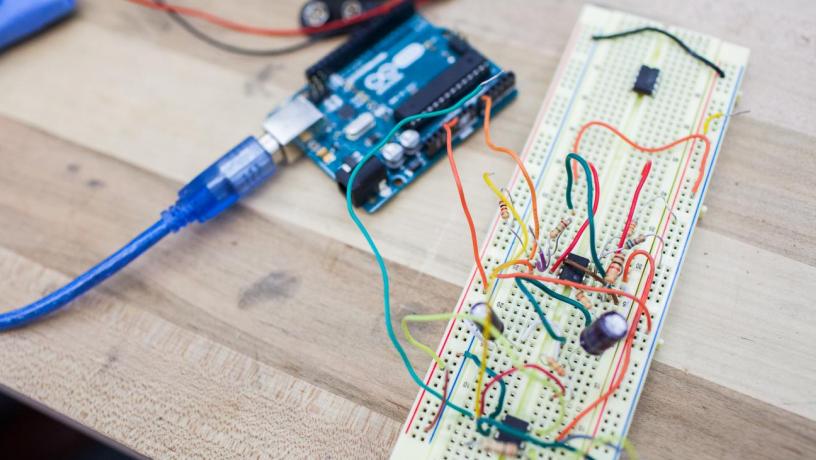
Five graduate student teams competed in the School's first-ever wearable device design challenge.
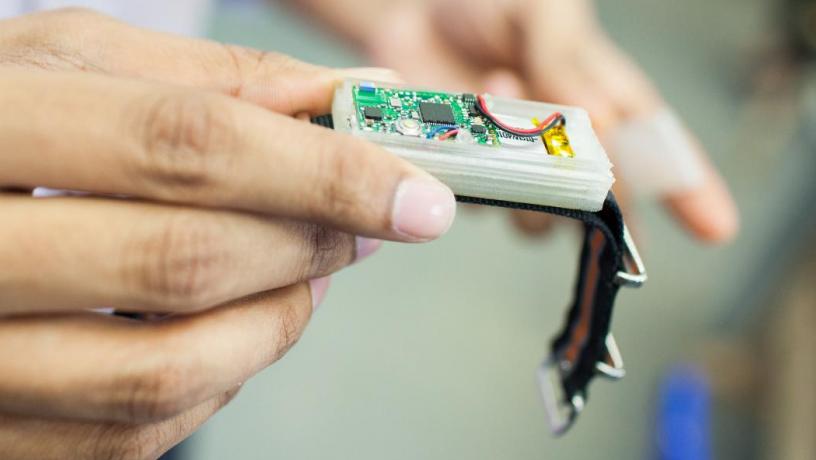
Dhruv Nair demonstrates Guide, a highly customizable device with applications ranging from navigation and emergency notification.
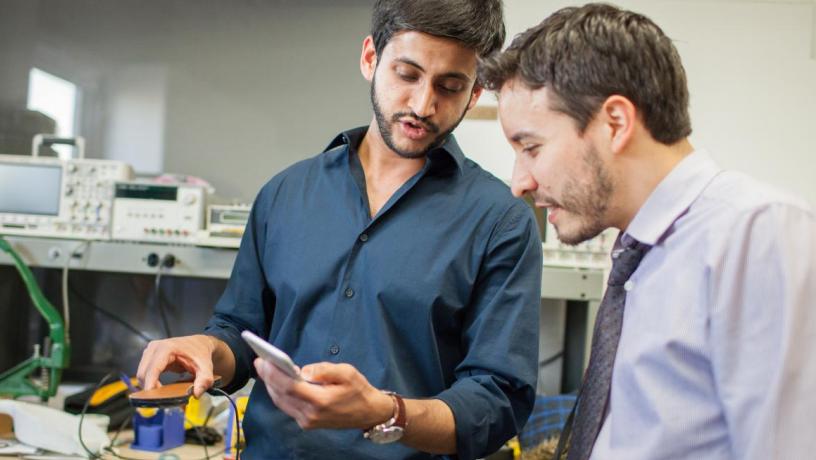
Omar Kyani (left) co-designed Stride, which tied for first place; right, Fred Sanchez of Graduate Student Affairs.
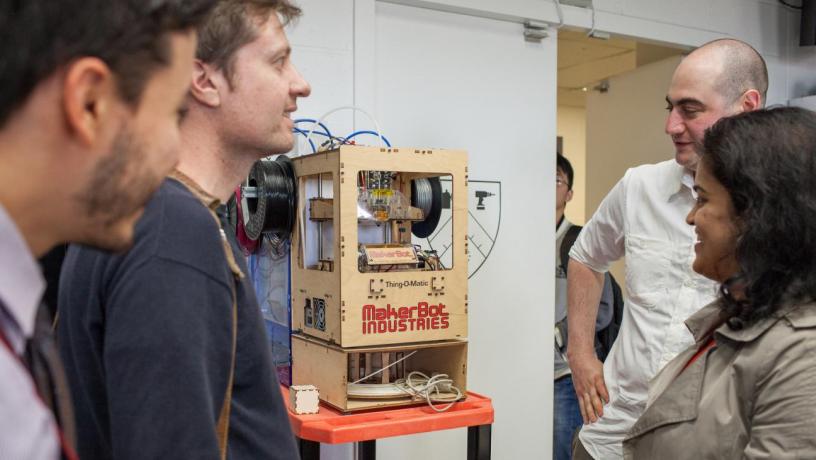
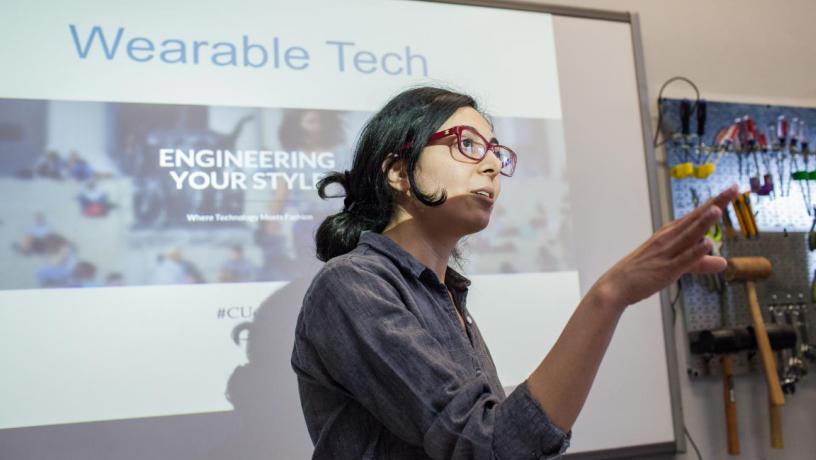
Ellie Bastani of Graduate Student Affairs welcomes presenters and judges.
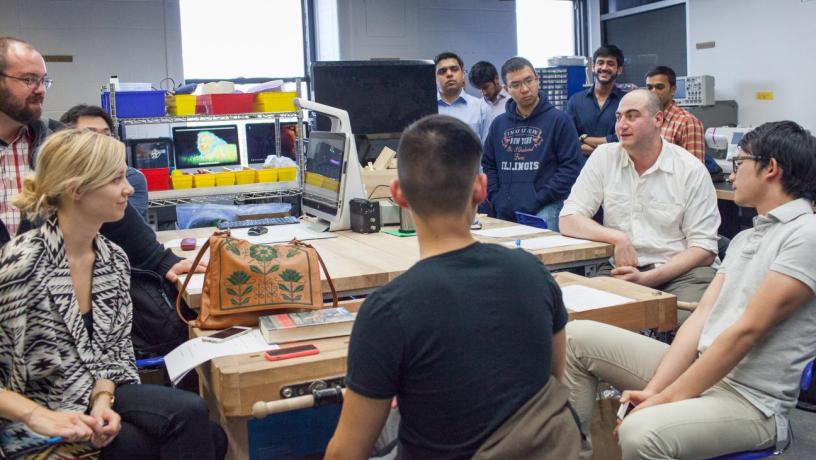
Judges weigh each team’s marketability, innovation, and commercial readiness.
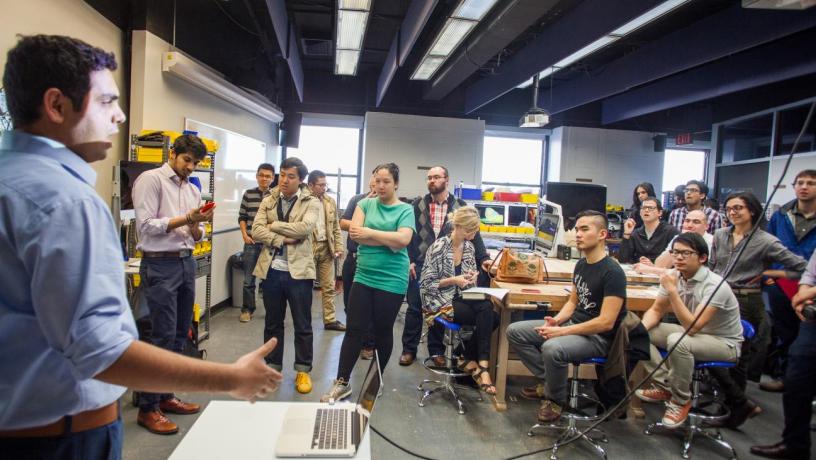
Student presenters Vaibhav Paraashar and Dhruv Nair.
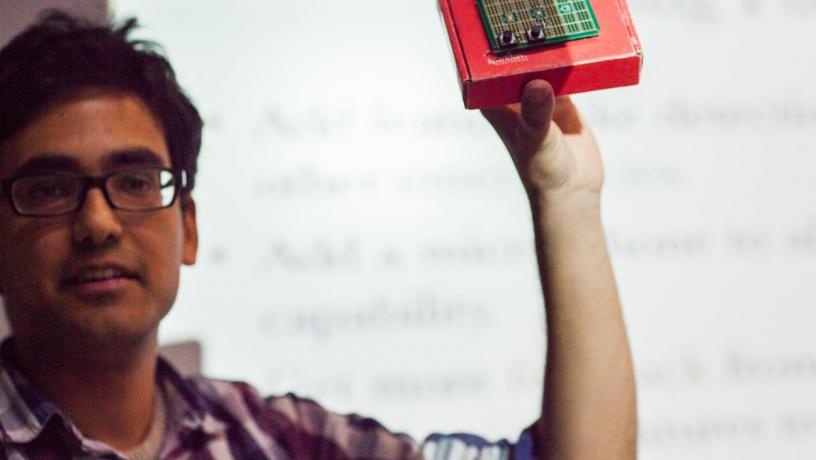
Sanket Gupta demos Speaksense, a device that plays recorded audio to enable people who rely on sign language to easily communicate in emergency situations.
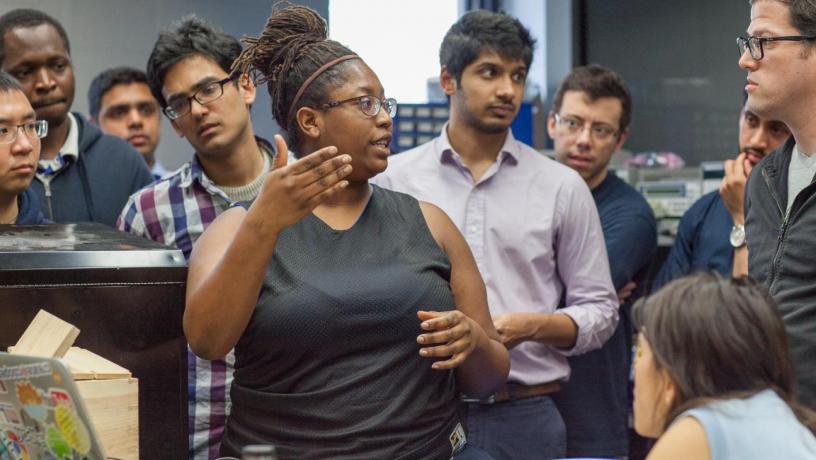
Kay Igwe explains Control iT, a brain computer interface device that turns minds into joysticks for novel games.
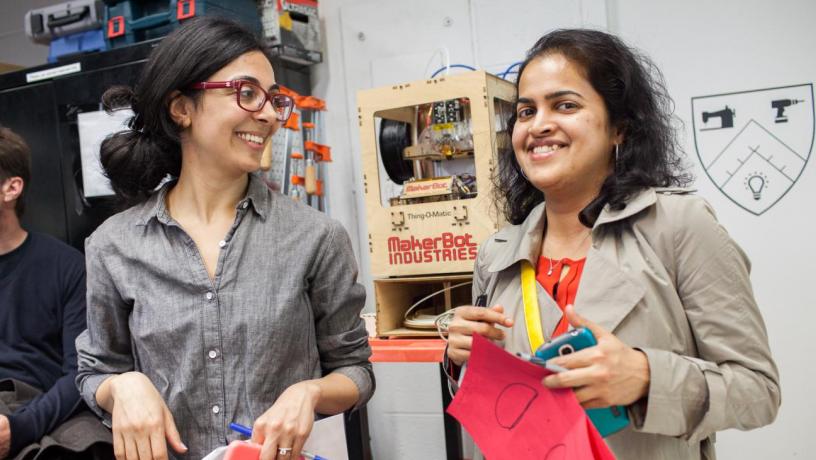
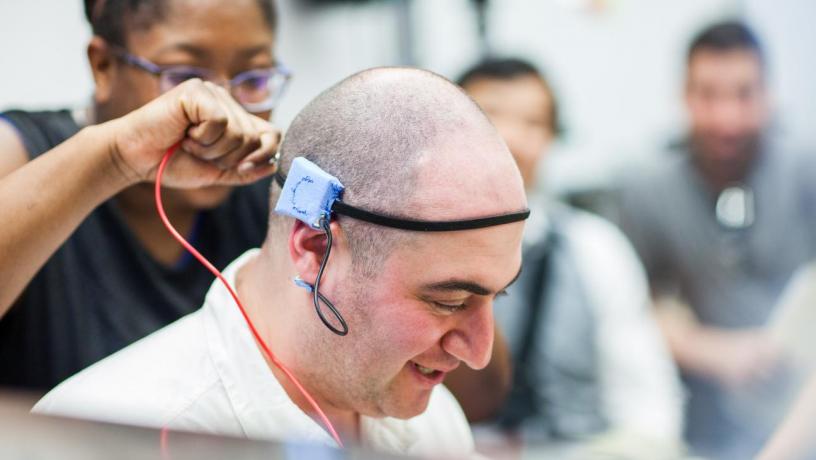
SEAS alumnus Adam Rapp, a judge, wears the Control iT device.
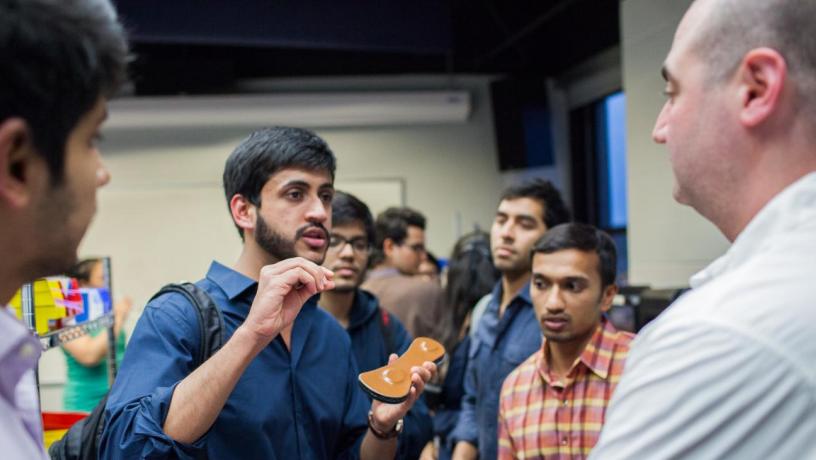
Stride is co-developed by electrical engineering graduate students Omar Kiyani (center) and Arvind Srinivasan (right, background).
From an initial field of 20, five teams were selected to receive $500 to develop, build, and program their prototypes in the Makerspace, with monthly mentorship and access to the facility’s resources. The student teams, which worked from October to February, demonstrated their prototypes and pitched their ideas to a panel of judges at the Makerspace on April 16, competing for the grand prize of presenting at the Maker Faire in New York City this September.
The judges—including Electrical Engineering Professor and Makerspace advisor John Kymissis, entrepreneur Adam Rapp BS’04, Fashion Institute of Technology professor Theanne Schiros, and tech expert Jeremy Balkin—weighed each team’s marketability, innovation, and readiness to pursue commercial applications.
The competition was so keen that the judges awarded shared first place to Guide, a highly customizable, low-power device with almost limitless potential applications, including navigation, location logging, and emergency notification, designed by graduate mechanical engineering students Dhruv Nair and Vaibhav Paraashar; and Stride, an innovative insole for shoes that has sensors to track gait and initiate vibrations to correct the wearer’s steps and prevent injuries in real time, the invention of electrical engineering graduate students Omar Kiyani and Arvind Srinivasan.
Other contenders were Speaksense, a device that plays recorded audio, among other applications, to enable people who rely on sign language to easily communicate in emergency situations, developed by Sanket Gupta (electrical engineering) and Yen-Chu Tu (chemical engineering); EEG Cap, a low-cost and portable electroencephalogram headset that analyzes brainwaves and can assist in decision-making, by Yandong Li (electrical engineering); and Control iT, a brain computer inferface device that uses signal acquisition from an electrode to turns minds into joysticks for novel games, created by Kay Igwe (electrical engineering).
The finalists also received free movie tickets and tickets to an end of semester social at the Sky Room in Times Square from the Office of Graduate Student Affairs, which sponsored the competition.
“This competition enables students to experiment with ideas while also challenging them to think critically about the process of product development, pitching concepts, the rewards and challenges of collaboration, and the importance of user feedback and research,” said Ellie Bastani, assistant dean of Graduate Student Services and Post-Doctoral Affairs, who served as a judge and mentored teams throughout the process. “We’re excited to continue the competition in the upcoming fall semester.”
